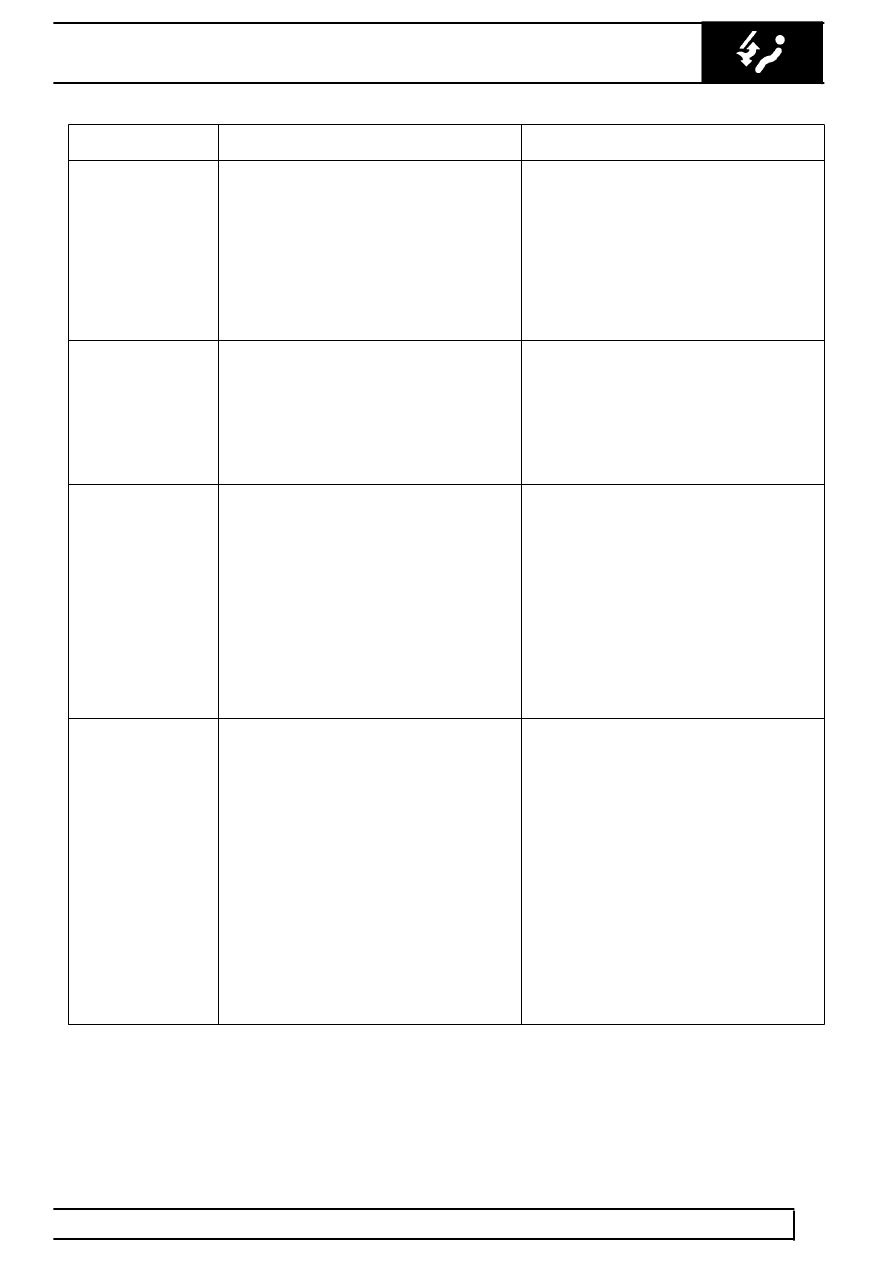300Tdi Discovery

AIR CONDITIONING
3
FAULT DIAGNOSIS
FAULT
CAUSE
REMEDY
1. Overcharge of refrigerant.
1. Discharge, evacuate and charge
system.
A.
HIGH HEAD
2. Air in system.
2. Discharge system, fit new drier,
PRESSURE
evacuate and charge system.
3. Condenser air passage clogged
3. Clean condenser of debris.
with dirt or other foreign matter.
4. Condenser fan motor defective.
4. Replace motor.
5. Incorrect voltage to fan motor.
5. Check voltage.
1. Undercharge of refrigerant;
1. Evacuate and charge system.
B.
evident by bubbles in sight
Check for leakage.
LOW HEAD
glass while system is operating
PRESSURE
2. Split compressor gasket or
2. Replace gasket and/or reed
leaking valves.
valve. Fit new drier, evacuate and
charge system.
3. Defective compressor.
3. Repair or replace compressor.
1. Loose drive belt
1. Check belt tension.
2. Refrigerant flooding through
evaporator into suction line; evident
by ice on suction line and suction
service valve.
2. Check thermobulb. Bulb should be
securely clamped to clean horizontal
section of copper suction pipe.
C.
3. Expansion valve stuck open.
3. Replace expansion valve.
HIGH
4. Leaking compressor valves,
4. Replace valves and/or
SUCTION
valve gaskets and/or service
gaskets. Fit new drier
PRESSURE
valves.
evacuate and charge system.
5. Receiver/drier blocked; evident
5. Fit new drier, evacuate
by temperature difference
and charge system.
between input and output lines.
1. Expansion valve thermobulb not
1. Warm thermobulb with hand.
operating.
Suction should rise rapidly to 1.4 bar
20 lb/in
2
or more. If not replace
expansion valve.
2. Expansion valve sticking closed.
2. Check inlet side screen.
D.
Clean if clogged. Refer
LOW
to C-2 and C-3.
SUCTION
3. Moisture freezing in expansion valve
orifice. Valve outlet tube will frost
while inlet hose tube will have little or
no frost. System operates
periodically.
3. Fit new drier, evacuate and charge
system.
4. Dust, paper scraps, or other debris
restricting evaporator blower grille
4. Clean grilles as required.
5. Defective evaporator blower motor,
wiring, or blower switch.
5. Refer to Fault Diagnosis Chart for
blower motor.
